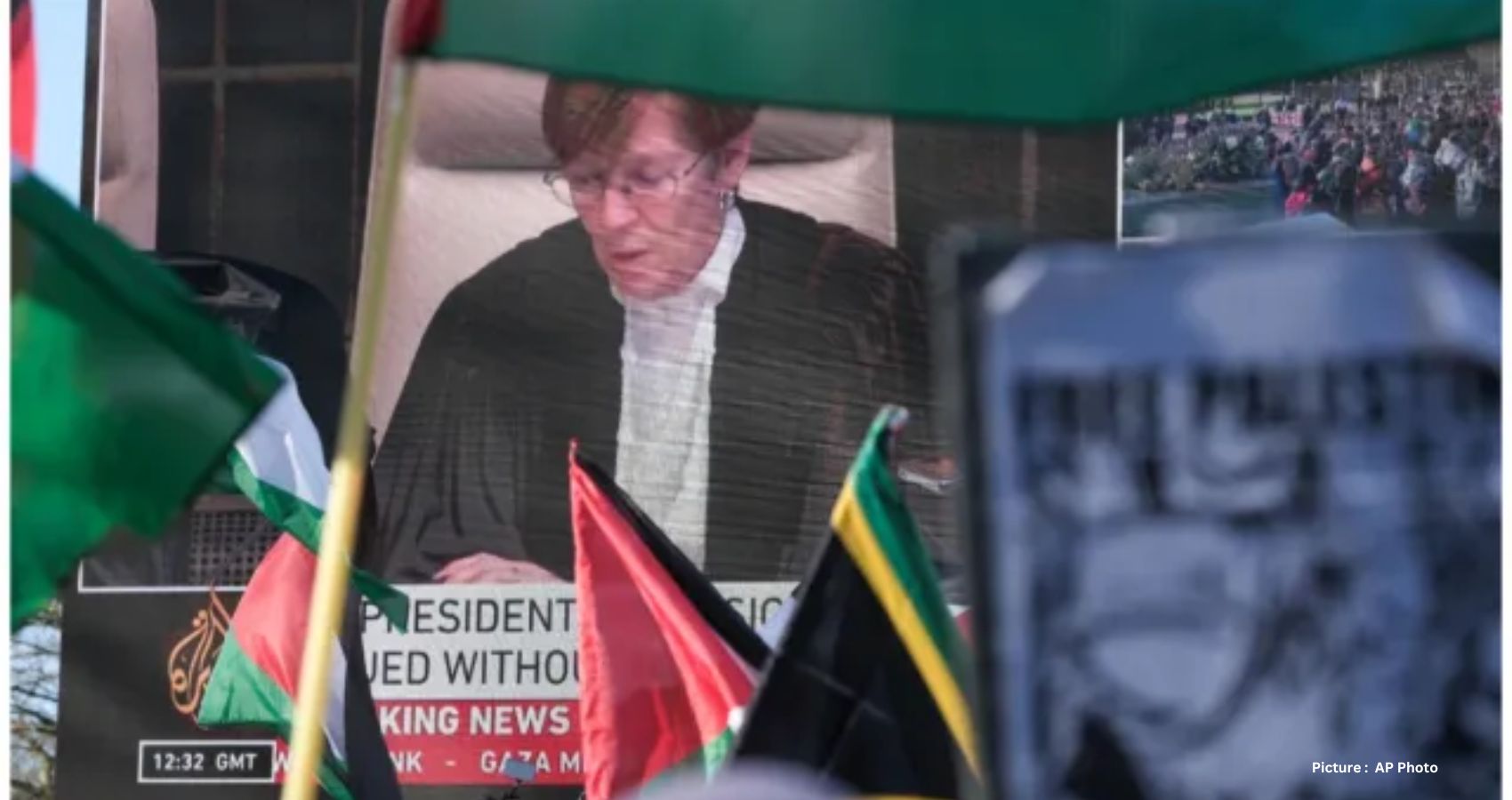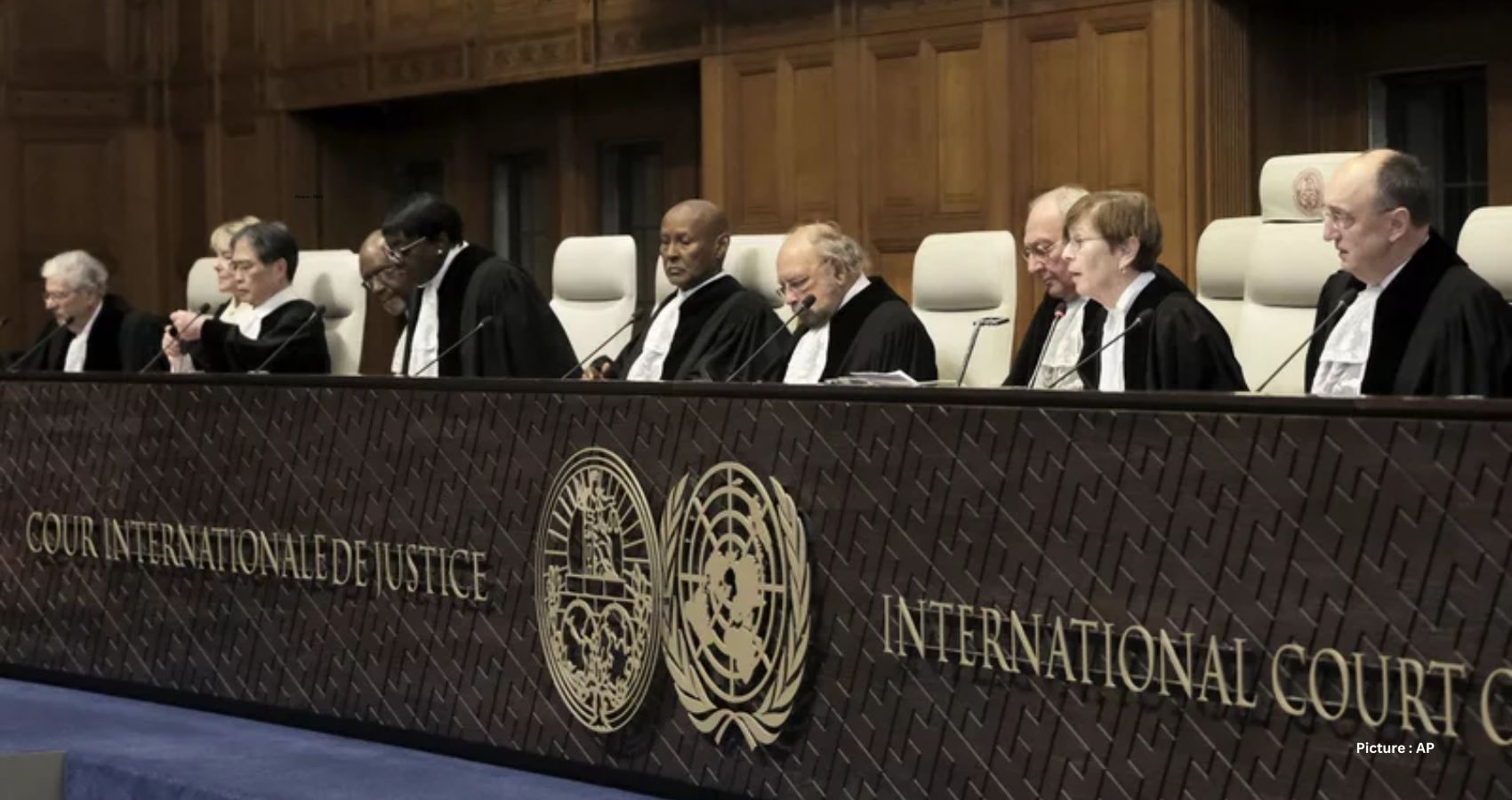The International Court of Justice (ICJ) has issued a directive to Israel, compelling it to enhance its protection of civilians within the Gaza Strip amidst its conflict with Hamas. The court has granted Prime Minister Netanyahu’s administration a one-month window to furnish a comprehensive plan in response to this mandate.
This deadline presents a significant challenge to President Biden’s backing of Israel’s offensive, especially in light of escalating global pressure for a cessation of hostilities. The United States has been a vocal advocate for respecting decisions emanating from international judicial bodies, adding weight to the ICJ’s verdict.
Stephen Rapp, former U.S. Ambassador-at-Large for War Crimes Issues, emphasized the significance of this decision for Israel, stressing that compliance holds substantial consequences in international relations. He noted that key U.S. allies would anticipate Israel’s adherence to the ICJ’s directives, cautioning that defiance could isolate the Israeli government diplomatically.
Despite South Africa’s plea for a ceasefire, which was part of its accusations against Israel presented to the ICJ, the court’s ruling did not explicitly demand one. However, South Africa’s Foreign Minister, Naledi Pandor, asserted that implementing a ceasefire is imperative to fulfill the court’s stipulations, emphasizing the need to mitigate harm to innocent civilians.
The Biden administration has expressed concerns about the humanitarian toll of the conflict, urging Israel to take greater measures to safeguard civilians. While the U.S. acknowledges Israel’s right to self-defense, it advocates for actions aimed at minimizing civilian casualties and facilitating humanitarian aid to Gaza.
The administration’s stance aligns with the ICJ’s ruling, albeit it has rebuffed efforts to impose direct action against Israel, notably at the United Nations Security Council. The U.S. favors “humanitarian pauses” over a blanket ceasefire, aiming to balance Israel’s security concerns with the urgent humanitarian needs of Gaza’s population.
Critics contend that Israel’s military operations have inflicted extensive damage, necessitating an immediate ceasefire to alleviate the humanitarian crisis in Gaza. They also oppose U.S. military aid to Israel, citing the ICJ’s acknowledgment of potential violations of the Convention on the Prevention and Punishment of the Crime of Genocide.
The ICJ’s ruling has prompted reactions within the United States, with some calling for a reassessment of military aid to Israel to avoid complicity in potential violations of international law. Calls for a ceasefire have resonated among Democratic lawmakers, with proposals for increased congressional oversight on arms sales and aid to Israel gaining traction.
While the majority of Congress opposes compelling Israel into a ceasefire, there’s growing concern among Democrats regarding Israel’s conduct of the conflict. Senators are exploring avenues to enhance congressional oversight and ensure that U.S. military assistance aligns with international humanitarian standards.
The ICJ’s comprehensive ruling on the allegation of genocide against Palestinians is anticipated to unfold over several years. Proponents of Israel’s right to self-defense view the initial verdict as a cautionary signal, acknowledging the mounting concern over civilian casualties and humanitarian conditions.
Robert Satloff, Executive Director of the Washington Institute for Near East Policy, cautioned against complacency, emphasizing the real political implications of the international community’s concerns regarding civilian casualties and the humanitarian crisis in Gaza.



